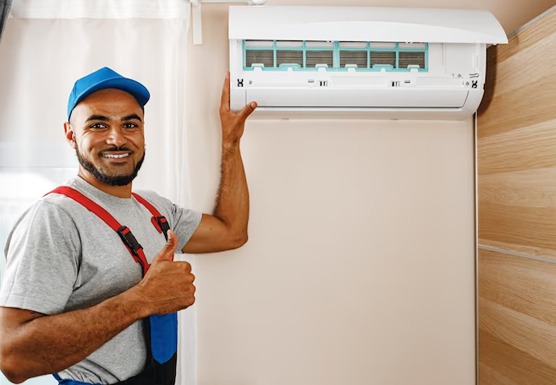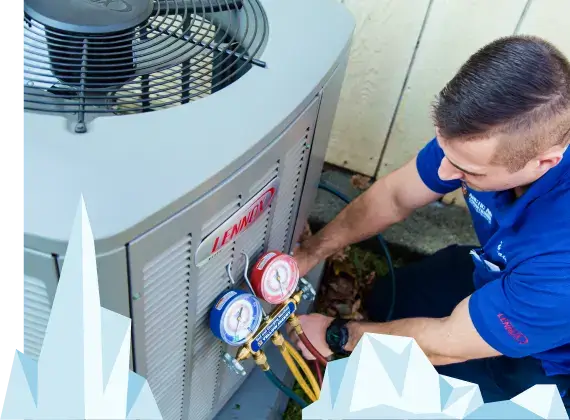A/c Repairing: Specialist Cooling System Remediation Ensures Your Home Stays Comfy Throughout The Most Popular Days
Common Cooling Problems
Have you ever felt that unexpected rush of warm air just when you anticipated a cool breeze? It's frustrating, isn't it? Lots of homeowners face this problem, typically unaware of what prowls below the surface of their cooling system. Let's unwind the mystery behind a few of the most frequent concerns that demand prompt air conditioning repair.
Why Won't My AC Cool Effectively?
When your air conditioning system blows lukewarm air instead of a rejuvenating chill, it's a clear indication something's off. A clogged filter or low refrigerant levels typically play the villain here. Imagine attempting to breathe through a scarf on a hot day-- that's what a dirty filter does to your system. Ever wondered why your energy bills increase when the cooling drops? That's your air conditioner having a hard time more difficult to make up for inefficiencies.
Weird Noises and What They Mean
Clicking, buzzing, or rattling sounds aren't simply sounds-- they're weeps for help. A loose belt or a failing motor may be the culprits. One property owner recounted how a consistent grinding sound ended up being a damaged compressor, conserving them from a total breakdown by acting rapidly.
Typical Concerns at a Look
| Sign | Likely Cause | Quick Repair |
|---|---|---|
| Warm Air | Low refrigerant or filthy filter | Change filter, check refrigerant levels |
| Water Leaks | Blocked drain line or frozen coils | Clear drain line, thaw coils |
| Uncommon Sounds | Loose parts or motor problems | Tighten parts, examine motor |
Is Your air conditioner Cycling On and Off?
Short cycling is more than an inconvenience; it can dramatically lower your system's life-span. This might signify a large system or a thermostat glitch. Have you observed your system turning on and off like a flickering light? Don't neglect it. It's a subtle tip prompting you to hire the experts before it becomes an expensive disaster.
- Unclean filters and coils trigger airflow problems.
- Thermostat malfunctions cause inconsistent temperature levels.
- Electrical problems can stop your air conditioner from starting.
Necessary Tools for Cooling Repair Work
Ever stood in front of a vast air conditioning unit questioning which tool will unlock the mystery? The right instruments can make all the difference in between a quick fix and an endless afternoon of aggravation. For example, a digital manifold gauge set isn't simply a fancy gizmo; it's the investigator's magnifying glass in the world of refrigerant pressure. Its precision helps pinpoint leaks or more info imbalances that a casual glance may miss out on.
| Megan Pariseau | Dawson and Jacob were incredibly helpful and efficient. | Review of Bold City Heating & Air in Jacksonville FL by Megan Pariseau |
| ryan m | Mirza and his team were awesome. The price was exactly what they quoted, and the work was top-notch and done in a very timely manner. They were able to install in days, where other had quoted me weeks. | Review of Bold City Heating & Air in Jacksonville FL by ryan m |
| Francis Douglas | Edwin was fast,professional and friendly. Keep up the good work Mirza! | Review of Bold City Heating & Air in Jacksonville FL by Francis Douglas |
| Nancy Baldwin | Trace was awesome. | Review of Bold City Heating & Air in Jacksonville FL by Nancy Baldwin |
| Clare Plummer | We always enjoy working with Bold City! Cannon came out and cleaned our ducts and we could not be happier! Insightful, kind, and professional! | Review of Bold City Heating & Air in Jacksonville FL by Clare Plummer |
| Victoria Hanner | Tom & Seth were great to work with, very professional and friendly! Cannon cleaned out air ducts and was absolutely amazing, very respectful and excellent work. Would recommend Bold City Heating & Air to any & everyone! :) | Review of Bold City Heating & Air in Jacksonville FL by Victoria Hanner |
When handling stubborn or rusted components, a quality tubing cutter is worth its weight in gold. It slices through copper pipes easily, preventing damage that could result in costly leakages. Have you ever tried to bend copper tubing by hand only to wind up with kinks? Avoiding this needs specialized bending tools designed to preserve the pipe's integrity.
Tools That Specialists Swear By
- Air pump: Vital for eliminating moisture and air from the system before charging refrigerant, guaranteeing optimal performance.
- Leak detector: A must-have for catching invisible refrigerant leaks that can trigger system inadequacy.
- Multimeter: Beyond measuring voltage, it's essential for identifying electrical faults within the a/c's control system.
- Fin comb: A little yet magnificent tool that corrects the alignment of bent condenser fins, boosting air flow and efficiency.
Pro Tips for Utilizing Cooling Repair Tools
- Always validate your gauge readings against maker specs; even skilled techs confirm to avoid expensive misdiagnoses.
- When using an air pump, ensure all valves and hoses are airtight; a small leakage can destroy the evacuation procedure.
- Tidy your fin comb regularly. Dust and grime can cause it to snag, damaging delicate fins even more.

In the heat of summer season, a malfunctioning compressor or clogged up filter can feel like a ticking time bomb. However armed with the right tools and knowledge, the repair becomes less of an experience and more of a gratifying puzzle solved. Isn't it curious how a well-calibrated gauge or an easy leakage detector can change the whole result?
Step-by-Step Repair Process
Ever observed how your air conditioning system starts to sputter, hardly whispering the cool breeze it when provided? The first move is an extensive diagnosis-- due to the fact that guessing just lose time and resources. You might begin by checking the thermostat settings, however often the real perpetrator lurks much deeper.

1. Preliminary Inspection and Diagnostic
Begin by powering off the system to prevent shocks. Open the gain access to panels and visually examine for charred wires, stopped up filters, or ice accumulation. A common oversight is ignoring the condenser coils; dust and dirt here can choke performance. Use a multimeter to test electrical elements and verify if the compressor is getting power.
2. Determining Refrigerant Issues
Does the unit blow warm air? That's often an indication of low refrigerant levels or leaks. Professionals utilize a manifold gauge set to determine pressure properly. Remember, overcharging or undercharging the system can trigger irreversible damage-- exact measurement is essential.
3. Cleaning and Component Replacement
In some cases, a simple coil cleansing revives the system. Other times, it needs switching out capacitors, contactors, or fan motors. Replacing these parts includes mindful disassembly and reassembly; skipping actions can result in further breakdowns.
4. System Screening and Calibration
When repairs are made, change the unit back on and observe its behavior. Step the temperature drop across the evaporator coil-- it needs to be roughly 15-20 ° F. If not, recalibrate the thermostat or check for airflow blockages.
Expert Tips
- Avoid running the compressor without refrigerant-- this burns out the motor quickly.
- Use a UV color to find elusive leakages; they're frequently concealed in hard-to-reach locations.
- Never neglect the drain line-- blockages here can trigger water damage and system failure.
- Wear insulated gloves when dealing with capacitors; they keep charge and can provide a nasty shock.
Guarding Versus Abrupt Breakdowns
Have you ever wondered why your a/c sputters to a stop right at the peak of summertime? The truth is, neglecting routine maintenance often welcomes unforeseen failures. Dust, debris, and damaged parts wage a silent war inside your unit. Preventive upkeep is the secret weapon-- catching minor issues before they spiral out of control.
Professional Tips for Keeping Your Air Conditioner in Leading Shape
- Tidy or replace filters month-to-month: A clogged filter chokes air flow, requiring the system to work overtime and speeding up wear.
- Examine coil fins: Bent fins restrict air passage, just like a traffic congestion in your cooling system. Utilize a fin comb to correct them carefully.
- Examine refrigerant levels: Low refrigerant can cause the compressor to get too hot, a precursor to pricey repairs.
- Clear the condensate drain: Obstructions here can lead to water damage and mold growth, a covert culprit behind lingering smells.
- Analyze electrical connections: Loose circuitry or corroded terminals often spark intermittent failures, a subtle indication.
When Was the Last Time You Listened to Your air conditioner?
That faint rattling or unusual hum may appear trivial, but it's a precursor to larger mechanical woes. One summertime, a client discussed a soft buzzing sound. A quick inspection revealed a loose fan blade-- easy to fix, yet left ignored, it could have shattered the motor. Minutes like these highlight the worth of regular checks.
Quick Checklist for Seasonal Prep
| Action | Frequency | Why It Matters |
|---|---|---|
| Filter cleaning/replacement | Every 30 days | Maintains airflow and effectiveness |
| Coil and fin inspection | Two times a year | Prevents airflow limitations |
| Refrigerant level check | Each year | Guarantees appropriate cooling capacity |
| Drain line cleaning | Every 6 months | Avoids water damage and mold |
| Electrical system evaluation | Each year | Avoids sudden shutdowns |
Pro Pointer: Beyond the Essentials
Did you understand that gently lubricating the fan motor bearings every year can extend their lifespan? It's a detail frequently ignored but essential. Also, shading your outside system from direct sunshine can minimize the compressor's work, subtly boosting longevity. Remember, the health of your a/c unit is a reflection of the attention you give it before it shrieks for assistance.